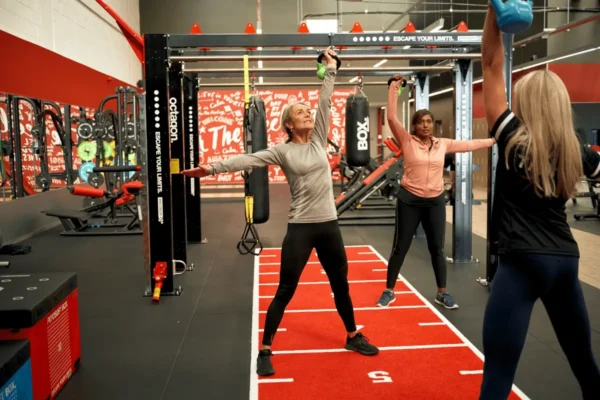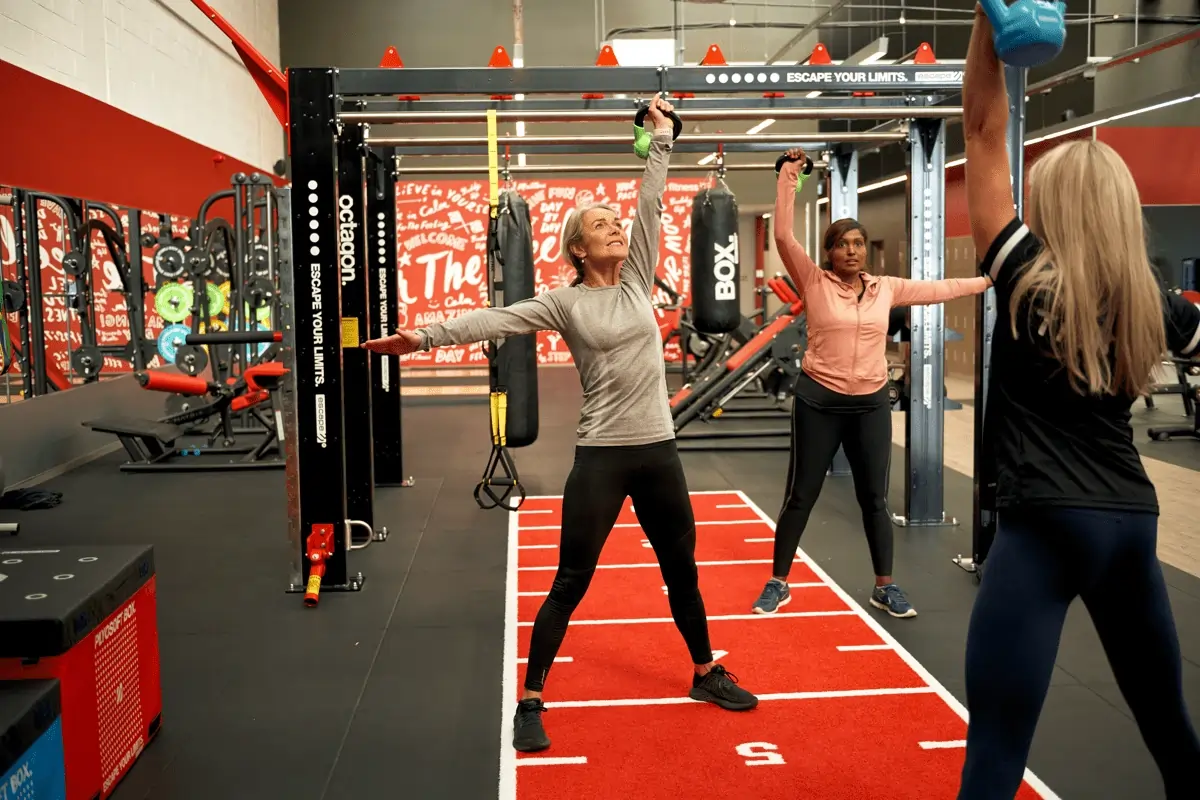

Train Fitness: Expert Personal Trainer Courses & Qualifications
Train Fitness: Expert Personal Trainer Courses
In today’s fast-paced world, the demand for personal trainers is on the rise as individuals seek to achieve their fitness goals more efficiently, often through programs that include rep counting. Whether you’re looking to embark on a career in personal training or to enhance your existing skills, understanding the fundamentals of personal training is crucial for anyone starting a new career in this vibrant industry. This article delves into the role, responsibilities, and benefits of personal trainers while highlighting available training courses that can help you become a skilled train fitness professional.
Understanding Personal Training
What is Personal Training?
Personal training is a specialized service provided by train fitness professionals who assist clients in achieving their health and fitness goals through customized workout plans and nutritional guidance, often tailored for beginners. A personal trainer assesses each client’s fitness levels and develops tailored programs that often combine various exercise modalities, including strength training and aerobic workouts, with a focus on rep counting. By offering one-on-one coaching, trainers ensure that clients receive the motivation and accountability they need throughout their train fitness journey, which can help them recognize their progress through effective rep counting. Personal trainers typically work in diverse environments, such as gyms, wellness centers, or even clients’ homes, and may specialize in specific areas like weight loss or rehabilitation to cater to individual needs.
Role of a Personal Trainer
The role of a personal trainer encompasses a variety of responsibilities that go beyond just instructing clients on exercise techniques. They conduct comprehensive fitness assessments to identify clients’ starting points and design personalized exercise regimens that align with specific fitness goals, which can be enhanced through the motion of your Apple Watch. A trainer’s expertise in automatic exercise tracking, such as using an Apple Watch, can enhance the training experience by providing real-time data on train fitness performance. Additionally, personal trainers offer essential support, motivation, and accountability, fostering an encouraging atmosphere that empowers clients to overcome challenges and achieve their desired outcomes. Furthermore, they may educate clients on nutrition, lifestyle modifications, and injury prevention to promote overall wellness.
Benefits of Personal Training
Personal training offers a multitude of benefits that can significantly enhance an individual’s train fitness experience. With personalized attention and tailored workout programs, clients receive expert guidance on effective exercise techniques that can improve their overall performance, making them feel like they are at the center of their fitness journey. The motivation and accountability provided by trainers help individuals stay committed to their fitness goals, leading to more efficient and effective workouts. Clients often notice improved results and enhanced confidence as they progress through their training. Additionally, a deeper understanding of train fitness principles gained through personal training can lead to long-term lifestyle changes, ensuring that clients not only achieve their goals but also maintain their health and fitness for years to come.
Key Qualifications for Fitness Professionals
Level 3 Personal Trainer Certification
The Level 3 Personal Trainer Certification is a pivotal qualification for those aspiring to enter the fitness industry as personal trainers. Recognized by organizations such as CIMSPA and the National Register of Personal Trainers, this certification confirms that trainers possess the essential knowledge and skills required to create and implement safe and effective workout programs. The course covers critical areas such as anatomy, physiology, nutrition, and exercise programming, equipping trainers to meet the diverse train fitness goals of their clients. For many, obtaining this certification is a prerequisite for securing a position in gyms or wellness centers, making it a vital step in a career in personal training.
Required Skills and Knowledge
To excel in personal training, fitness professionals must cultivate a diverse skill set and extensive knowledge base. A solid understanding of anatomy and physiology is crucial, as trainers need to know how the body responds to various exercises and how neural kinetic principles apply. Additionally, familiarity with nutrition and exercise science allows trainers to design effective programs tailored to individual fitness levels, utilizing principles of neurolinguistic programming. Communication skills are equally important, enabling trainers to instruct clients clearly and provide constructive feedback, which can help them recognize areas for improvement. An arcarrierpoint in this profession is the ability to motivate and lead, as strong interpersonal skills help trainers establish rapport with clients and foster a supportive environment for their fitness journey.
Training Courses Overview
Training courses for personal trainers can vary widely in format and duration, offering options for full-time, part-time, and online study. Many programs integrate practical assessments, theoretical examinations, and hands-on training experiences to ensure a comprehensive learning process for beginners in personal training. Essential topics covered in these courses include exercise programming, client assessment, nutrition, and health and safety protocols. Some training providers also offer specialized courses in areas such as group fitness, strength training, and rehabilitation, enabling trainers to specialize and expand their skill sets as they pursue their careers as personal trainers. It is crucial for aspiring personal trainers to select accredited programs recognized by industry bodies to ensure their qualifications are valued and respected within the fitness community.
Popular Personal Training Courses
Overview of Training Courses for the Fitness Industry
In the diverse landscape of the fitness industry, various train fitness courses cater to aspiring personal trainers, such as the Level 2 Gym Instructor Course and the Level 3 Personal Trainer Course. These programs are designed to equip individuals with the essential knowledge and skills necessary to become fitness professionals. Many training providers offer flexible learning options, including online courses and intensive workshops, enabling students to balance their studies with other commitments, often through learning with highly interactive courses. Additionally, these courses often incorporate practical components, allowing students to gain hands-on experience, which is crucial for their future careers in personal training.
Online Training Courses Providers
Online training course providers have surged in popularity, offering aspiring personal trainers the flexibility to study at their own pace and pursue a diploma in personal training. Organizations like Train Fitness deliver interactive online courses that are widely recognized within the fitness industry. These courses feature engaging content, such as videos and quizzes, and often include forums for interaction with tutors and peers, helping individuals in their careers as personal trainers. This combination of resources ensures that students not only learn the theoretical aspects of personal training but also develop practical skills that are essential for success in their future careers.
Specializations and Advanced Certifications
To elevate their careers, personal trainers can pursue specializations and advanced certifications in various areas, including nutrition, strength training, and rehabilitation, often through level 4 courses. These additional credentials not only enhance a trainer’s qualifications but also help them stand out in a competitive market, especially if they hold a level 4 certification. Specialized courses provide in-depth knowledge of specific subjects, enabling trainers to offer comprehensive services tailored to individual client needs. Moreover, certain advanced certifications may be required to work with specific populations or in specialized settings, ensuring trainers are well-prepared to meet the demands of their clients.
Integrating Technology in Personal Training
The Role of AI in Fitness
Artificial intelligence (AI) is significantly transforming the fitness industry by introducing innovative solutions for personal training and workout tracking. AI-powered applications analyze user data to create customized workout plans and monitor progress in real time, enhancing the training experience. This technology allows personal trainers to focus more on client interaction while minimizing administrative tasks. By utilizing AI, trainers can identify trends in client performance, enabling them to make informed adjustments to workout programs that align with each individual’s train fitness goals and privacy policy.
Automatic Exercise Tracking with Apple Watch
The advent of automatic exercise tracking technology, particularly through devices like the Apple Watch, has revolutionized how individuals monitor their workouts and recognize their train fitness progress. Utilizing advanced algorithms and motion sensors, these devices can detect various exercises, count repetitions, and track performance metrics effortlessly. This seamless integration allows users to concentrate on their workouts without the distraction of manual logging, thereby enhancing their overall training experience. The combination of automatic exercise detection with AI capabilities further personalizes users’ fitness journeys, providing tailored recommendations based on their unique performance data.
Using Fitness Trackers for Enhanced Workouts
Fitness trackers, including the motion of your Apple Watch, have become indispensable tools for individuals aiming to optimize their workouts and monitor their overall health. These devices provide critical insights into various metrics, such as heart rate, calories burned, and workout intensity, which can be used to track workouts effectively and monitor progress. By leveraging this data, users can make informed adjustments to their training regimens, ensuring they remain aligned with their fitness goals. Additionally, many fitness trackers include features that promote accountability, such as reminders to stay active and progress tracking, making them essential for anyone serious about their health and fitness journey.
Becoming a Successful Personal Trainer
Building Your Client Base
Building a client base is a crucial aspect of establishing a successful personal training career. Personal trainers can leverage various strategies to attract clients, including networking within their community, utilizing social media platforms, and offering free introductory sessions or workshops. Building strong relationships with clients through effective communication and personalized service can lead to referrals and repeat business. Additionally, trainers should consider creating a professional online presence, including a website and social media profiles, to showcase their expertise and client success stories.
Membership Options and Pricing Strategies
When setting up a personal training business, it is essential to consider membership options and pricing strategies that appeal to potential clients. Trainers may offer various packages, such as single sessions, bundled sessions, or monthly memberships, to cater to different budgets and preferences. Competitive pricing, combined with exceptional service, can attract clients and encourage long-term commitments, especially when privacy policies are clearly communicated. Additionally, offering flexible payment options, such as pay-as-you-go or subscription models, can enhance accessibility and appeal to a broader audience.
Marketing Yourself as a Trainer
Effective marketing is vital for personal trainers looking to grow their business and reach new clients. Trainers should develop a clear brand identity that reflects their values and expertise, especially if they aim to become personal trainers. Utilizing social media platforms to share fitness tips, client testimonials, and success stories can help build credibility and attract attention, especially for a startup in the fitness industry. Networking with local businesses, participating in community events, and collaborating with other train fitness professionals can also enhance visibility. Additionally, creating informative content, such as blogs or videos, can position trainers as industry experts and drive engagement with potential clients, especially those interested in gym workouts.
Future Trends in the Fitness Industry
Emerging Technologies in Personal Training
Emerging technologies are set to reshape the personal training landscape, with innovations such as virtual reality, augmented reality, and AI-driven train fitness applications gaining traction and potentially leading to patent opportunities. These technologies can provide immersive training experiences, allowing clients to engage in workouts that feel more interactive and motivating, often enabled using highly interactive courses recognized in the field. Furthermore, advancements in wearable technology will continue to enhance the ability to track and analyze performance metrics, leading to more personalized train fitness experiences using AI. As technology evolves, personal trainers will need to stay informed and adapt to these trends to remain competitive in the train fitness industry education.
Shifts in Consumer Fitness Preferences
Consumer train fitness preferences are shifting towards more personalized and flexible training options. Many individuals are seeking training solutions that fit their unique lifestyles, leading to an increase in demand for online coaching, virtual classes, and on-demand train fitness content, particularly for gym workouts. Additionally, there is a growing interest in holistic approaches to train fitness that encompass mental well-being, nutrition, and recovery, often centered around neurolinguistic programming techniques. Personal trainers who can adapt to these changing preferences and offer diverse services will be better positioned to meet client needs and succeed in the evolving fitness market.
Preparing for Changes in the Fitness Landscape
To prepare for changes in the fitness landscape, personal trainers must stay informed about industry trends and continuously enhance their skills and knowledge. This may involve pursuing ongoing education, attending workshops, and obtaining additional certifications in emerging areas of interest, particularly those recognized by train fitness industry education standards. Additionally, trainers should be open to adopting new technologies and integrating them into their train fitness practices to enhance their ability to track workouts effectively. Building a strong professional network and engaging with clients to understand their evolving needs will also be crucial for adapting to the dynamic fitness environment and ensuring long-term success.







